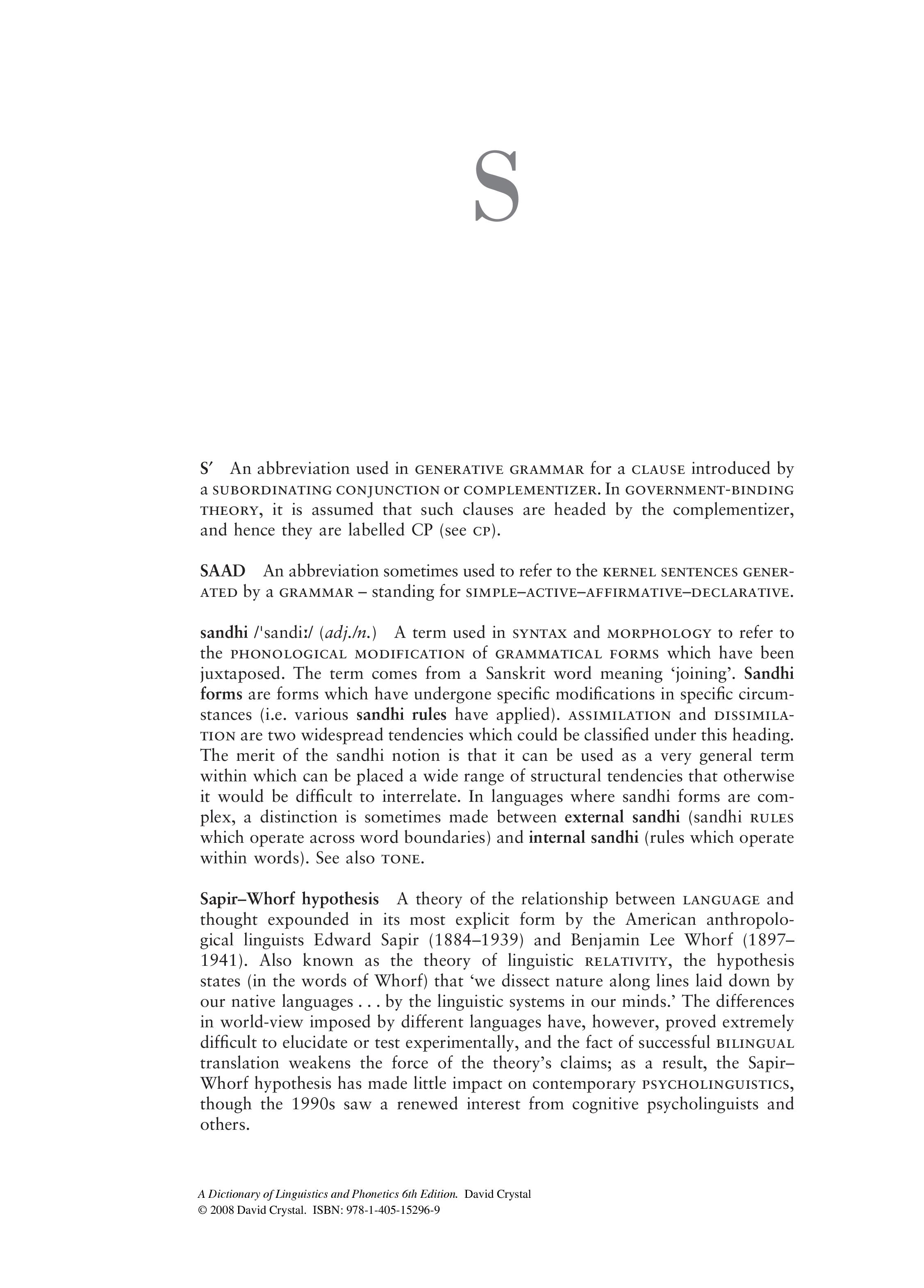Definition of Sapir–Whorf Hypothesis
Source: A Dictionary of Linguistics and Phonetics
1 "Sapir–Whorf hypothesis"
A theory of the relationship between language and thought expounded in its most explicit form by the American anthropological linguists Edward Sapir (1884–1939) and Benjamin Lee Whorf (1897– 1941). Also known as the theory of linguistic relativity, the hypothesis states (in the words of Whorf) that ‘we dissect nature along lines laid down by our native languages . . . by the linguistic systems in our minds.’ The differences in world-view imposed by different languages have, however, proved extremely difficult to elucidate or test experimentally, and the fact of successful bilingual translation weakens the force of the theory’s claims; as a result, the Sapir– Whorf hypothesis has made little impact on contemporary psycholinguistics, though the 1990s saw a renewed interest from cognitive psycholinguists and others.
Crystal, DLP, 422. [View as image] [Read on OMNIKA]
Page Image(s)

Citation
PsychLing Contributors. "Sapir–Whorf Hypothesis." PsychLing, OMNIKA Foundation, 5 Aug. 2023, psylng.org/glossary/term/sapir-whorf-hypothesis. Accessed 15 Feb. 2026.
PsychLing (2023, August 5). Sapir–Whorf Hypothesis. Retrieved from https://psylng.org/glossary/term/sapir-whorf-hypothesis
Bibliography
APA Contributors. "APA Dictionary of Psychology." Washington, DC: American Psychological Association. Accessed September 14, 2023. https://dictionary.apa.org. [Visit]
Crystal, David, ed. A Dictionary of Linguistics and Phonetics. 6ed. Malden, MA: Blackwell Publishing, 2011.
Internet Archive Contributors. "Wayback Machine." San Francisco, CA: Internet Archive. Created October 24, 2001. Accessed July 21, 2023. https://web.archive.org. [Visit]
